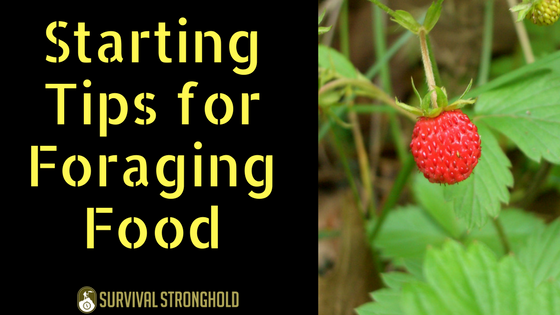If you plan on being able to forage food either in a wilderness survival situation, or after a disaster to give you an advantage over those clearing out the supermarkets at the last second, you’ll probably want to start now.
Foraging has many great benefits, even when you’re not doing it for survival. You can learn more about your local ecosystem and plant life, you can save money, you can source food and medicinal herbs locally, and you can, of course, learn where the edible food is in your area.
But before you just dive in and start searching high and low in your area of edible plants, here are some tips:
Get permission
If you are searching for edible plants on private property, don’t trespass; ask for permission. There are plenty of property owners who won’t mind, and who can even point you in the direction of the best harvest, and you can always work out some kind of trade or deal with them for labor or other goods.
If you’re foraging on public property of any kind, make sure to check the local laws. There are places that impose a harsh fine or even jail time for harvesting plants, so you don’t want to land yourself in hot water just for picking some berries. Always check local laws or simply ask at your park ranger station or municipal parks service office.
Learn edibility tests
Make sure you’ve tested something for edibility before consuming. This probably goes without saying, but it should be your first priority when foraging for food, and don’t assume something is edible simply because it looks like it. Here is a universal edibility test you can virtually always use.
Be sustainable
Be mindful of how much you’re taking, and how much is there. Don’t ever take more than you need, and don’t ever exceed 10% of what’s growing. If you want that food source to remain, you’ll have to steward it well. If there’s only one plant in an area, don’t harvest from it. You might end up extinguishing the last chance that species had to thrive in that area.
Make it a habit
Like gardening, hunting, or keeping a healthy kitchen, foraging should be a lifestyle, something you tend to regularly, especially if you want to regularly harvest from specific plants or areas. Visit often, and learn the patterns of growing and dying. This is the number one factor in securing a food source after a disaster strikes, so you can have a sustainable, well-tended-to food source when you need it the most.
If you enjoyed this, you might also like….


